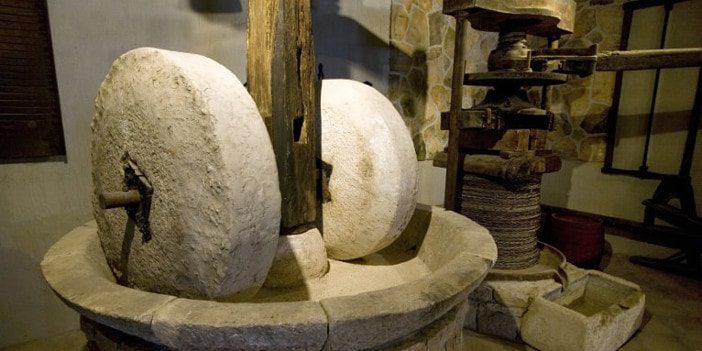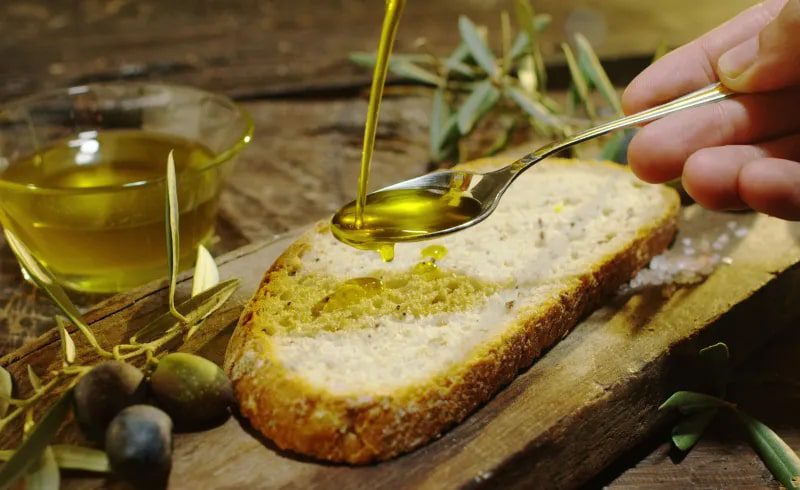Essential to the Mediterranean diet and to be consumed at any meal of the day, olive oil is of great nutritional value and health. Polyphenols, which have many benefits from skin health to heart and brain health to antioxidant effects, are abundant in olives and olive oil, so much so that olive oil is the only vegetable oil that contains intense polyphenols. Olive oil should be produced at low temperatures to avoid losing or damaging polyphenols.
Olive oil is prepared in 2 ways: cold pressed and hot pressed.

The first step in obtaining a quality olive oil is, of course, quality olives. Olives that are harvested when they are sufficiently ripe and not in contact with the ground should be processed very quickly and without waiting.
The olives are crushed together with their pits and made into a dough. Whether the olive oil is cold pressed or hot pressed depends on the temperature of the dough when kneading and the temperature of the water used in the oil separation. If the temperature is 27 degrees or below during all steps of the conversion from the olive to the oil, this is called cold pressing. This low temperature used in cold pressing results in a lower yield of olive oil, but increases the value of olive oil in terms of polyphenols and nutritional value. With hot pressing, the olive pulp can be heated up to 40 degrees, but this results in the nutrients in the olive being lost or damaged.
To distinguish whether it is hot or cold pressed olive oil, you can smell and taste it. When you smell an extra virgin olive oil, you smell an intense and fruity scent. At the same time, olive oil, which has antioxidant properties thanks to cold pressing, leaves a slightly bitter taste on the palate.



